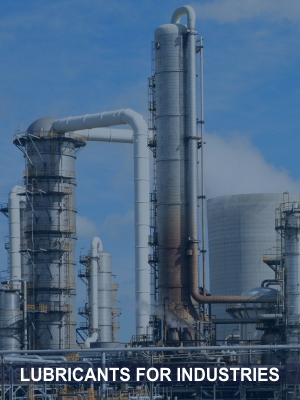Marrine
If you're referring to marine lubricants, these are specially formulated lubricating oils and greases designed for use in various marine applications. The marine industry has unique challenges and demands, including exposure to saltwater, high temperatures, and heavy loads. Here are some common types and considerations for marine lubricants:
Engine Oils:
- Marine engines, whether for propulsion or auxiliary power, require specific lubricants that can withstand the harsh conditions of the marine environment. Marine engine oils are designed to provide excellent lubrication, protect against corrosion, and resist the formation of deposits.
Gear Oils:
- Gear oils are used in marine gearboxes and transmissions. They must have good thermal stability and resistance to foaming, as well as protect against wear and corrosion. Different types of gear oils are available for various marine applications, including stern drives, outboard motors, and propulsion systems.
Hydraulic Oils:
- Hydraulic systems on ships and marine equipment require hydraulic oils that offer high performance under pressure, excellent anti-wear properties, and resistance to oxidation. These oils are crucial for the proper functioning of hydraulic systems in steering, winches, and other equipment.
Greases:
- Marine greases are used for various applications, including bearings, winches, and wire ropes. They must have good water resistance, provide protection against corrosion, and maintain their consistency over a range of temperatures.
Turbine Oils:
- Turbine oils are used in marine gas turbines and steam turbines. They are formulated to provide high-temperature stability, resist oxidation, and protect against wear.
Two-Stroke and Four-Stroke Lubricants:
- For two-stroke engines commonly found in smaller marine applications, specific lubricants are needed. Four-stroke marine engine oils are also available for larger vessels.
Environmentally Acceptable Lubricants (EALs):
- In response to environmental concerns, especially in areas with strict regulations, some marine lubricants are formulated as Environmentally Acceptable Lubricants. These are biodegradable and less harmful to marine ecosystems.
Compressor Oils:
- Marine air compressors require lubricants that can handle the compression process efficiently and resist the effects of moisture.
When selecting marine lubricants, it's essential to consider the type of equipment, operating conditions, and any environmental regulations that may apply. Manufacturers and operators should follow the recommendations provided by equipment manufacturers and lubricant suppliers to ensure optimal performance and compliance with industry standards.
Product Technical DataSheet
ANTI-SEIZE CS COMPOUND
Anti-seize Moly compound
CSEP-2 GREASE
SYG-1212 Marine Grease
SYG-1050 SYNTHETIC HIGH TEMEPERATURE GREASE


